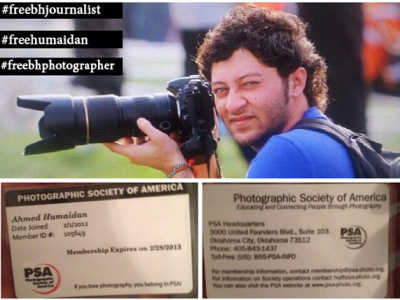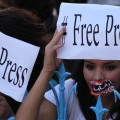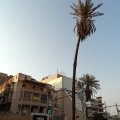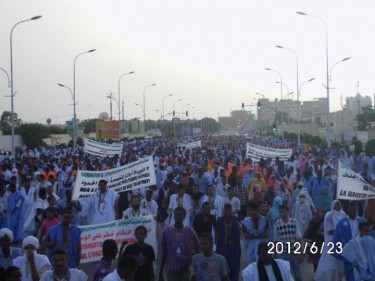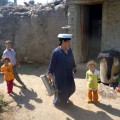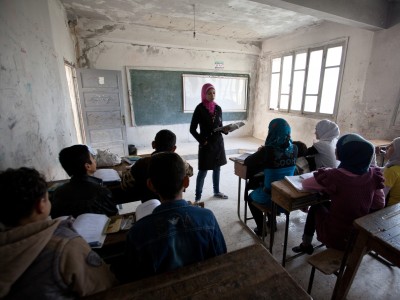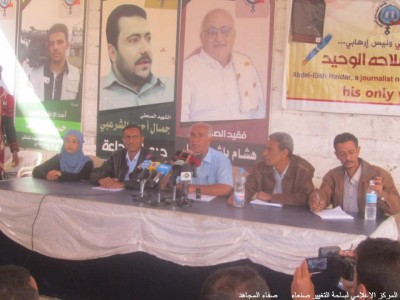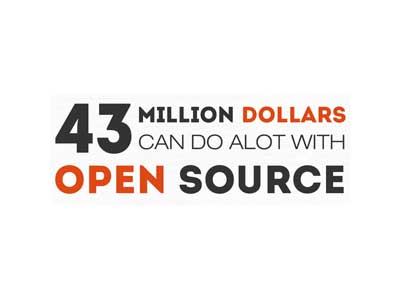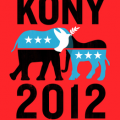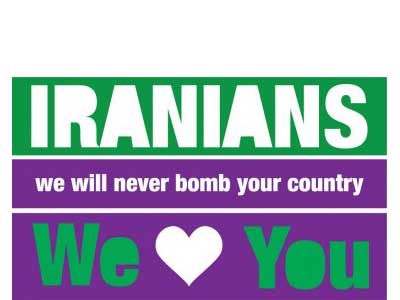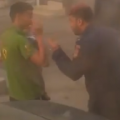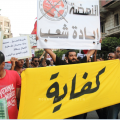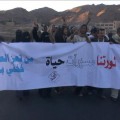Stories about Middle East & North Africa from December, 2012
No Haven for Citizen Journalists in Bahrain
After Bahrain police “Slap” video went viral the Minister of Interior issued a statement in which he asked that “anyone who films such an event should report it immediately” to the authorities. Two days later, and in contrast with such statements, many were shocked at the news of the arrest of a photojournalist.
State of Freedom of Speech in Tunisia in 2012
In 2012, the battle for freedom of expression continued in Tunisia. Though the internet remained uncensored, free speech advocates voiced concerns over the use of religion as a pretext to curb free speech. Meanwhile, a legal void has characterized the Tunisian media landscape as the government continues to ignore a new press law that protects journalists and limits government interference in media.
They Murder Trees in Egypt
Michael Hanna, an Egyptian blogger and pharmacist, mourns the murder of trees, as well as demolishing antique villas in Heliopolis suburb in Cairo. Find out what happened to what is perhaps the oldest palm tree in the area.
Mauritanians Find a Voice Online in 2012
Few people know about Mauritania, that African state. Even fewer know that it is a member of the Arab League, thus part of the Arab World. But too much has happened in 2012 in Mauritania. Despite the low rate of internet penetration, young people and activists are resorting to social media platforms in an attempt to say: We exist and to draw the world's attention to their country.
Yemen: A Year of Assassinations, Explosions and Drones
After a long year of revolution in Yemen, former President Ali Abdullah Saleh was "toppled" and replaced by President Abd-Rabbu Mansour Hadi on February 27, 2012, through a one-man-election. Nevertheless, Yemen witnessed a year of instability and violence. The year 2012 was a year of unprecedented numbers of suicide bombs, explosive cars, targeted killings, explosions of gas pipelines and electricity cables, besides the constant and frequent US drone attacks.
A Light in Syria’s Internet Blackout
Patrick Hilsman sheds light on in Syria’s internet blackout, which cut off the country from the rest of the world on November 29, 2012. The 29-year-old New York native landed in Aleppo to report on the conflict from the rebel-held section of the city, one of the city’s hardest hit neighborhoods. While he was online, reporting on the escalation in regime strikes, Syria’s internet blackout was taking hold across the rest of the country. Syria cut off access to internet service, isolating the country from the worldwide web.
MENA: Acclaimed Authors’ Favorites of 2012
M. Lynx Qualey, blogger, who is interested in Arab and Arabic literature, wrote a series of posts introducing acclaimed Arab poets, novelists, and short-story writers’ favorite Arab reads of 2012. She started with a list of nonfiction books, then followed by a list for poetry [En] and fiction [En].
Don't Mess With Egyptian Women!
Maryanne Gabbani, a Canadian expat and blogger, wrote a new blog post entitled “Don't Mess With Egyptian Women” to mention two stories she heard recently which, took place in the village she's living in.
Saudi Activist Trial Hearing Concludes
The last hearing session of one of Saudi Arabia's rare public trials of two prominent human rights activists Mohammad Al-Qahtani and Abdullah Al-Hamid was held at the Riyadh Criminal Court. During the hearing, the judge said he had a report he wanted to discuss with the two activists. Dr. al-Qahtani discovered it was sourced from an anonymous Twitter user.
Amid Syria's Conflict, a Teacher's Struggle in Homs
As part of our effort to highlight civilian stories, here is a conversation between Syria Deeply and a young schoolteacher in Homs. When he’s not in the classroom, he volunteers for a relief organization helping the victims of Syria’s conflict.
2015 is the Year of Oil and Gas in Lebanon
The year 2015 will be the Lebanese year for oil and gas exploration according to a timeline, which is supposed to be approved by the cabinet, and which is posted by the Lebanon Spring Blog.
Lebanon's National Football Team Scandal
“If it’s true that there are many players involved in match-fixing, of which 9 players are in the National Team, then you can kiss Football goodbye in Lebanon.” This is how Blog Baladi summed up his response to reports about the match-fixing scandal that has been going on for years and...
Yemen's Second Life March Attacked
Although Yemen's revolution removed the autocratic President Ali Abdullah Saleh and hoped it also got rid of his brutality in handling peaceful protesters, the Second Life March was also forcibly dispersed by President Abd Rabbuh Mansur Hadi's anti-riot forces using tear gas and batons resulting in reported and documented injuries of some protesters.
Egypt: The People Demand Free and Open Source Software
A lot has been said about the liberating role technology has played in the Middle East uprising, yet there is more to be said about the mutual role the uprising is yet to play in liberating the technology in the region. Angered by an announcement that the Egyptian government agreed to spending $43.8 million to acquire licenses and software products from Microsoft, members of the Open Source community in Egypt are planning a silent protest outside the Cabinet on December 30.
Africa's Tainted Global Media Coverage
The #Kony2012 campaign contained quite a few over-simplifications about Africa. African media itself is not immune from this sort of criticism either. Here is a summary of the gems, errors and other inaccuracies in media coverage of Africa.
Iran's Most Memorable Internet Moments in 2012
Here are some of the most memorable moments from the Iranian cyber world in 2012. The regime continued its repressive and merciless tactics against bloggers and netizens all year, culminating in the death by torture of Iranian blogger
Christmas Decorations around Lebanon
Cloud of Lace posts beautiful images of the Christmas decorations from various cities in Lebanon during this year's (2012) celebrations.
Syria: Negotiating Defection on Twitter
Following reports that former Syrian spokesman Jihad Makdissi had fled to the US, on 25 December activist Rami Jarrah, also known as Alexander Page, released private Twitter messages that show Makdissi had been in contact with him for months. This could be, as Twitter users have named it, “the first defection negotiation in history.”
Bahrain Police “Slap” Video Goes Viral
Two years ago what has become known as “The Arab Spring” was sparked when a member of the Tunisian police forces slapped a young man in Sidi Bouzid. People thought that the days of police suppression will be over soon, but in Bahrain yet another video has gone viral to remind us that police states are alive and well.
Do Egyptians Really Want IMF Money?
Soon after the beginning of the Egyptian revolution, negotiations over a loan from the International Monetary Fund (IMF) to the Egyptian government began. The purpose of negotiations was to secure a loan that supports Egypt’s economy following the concerns over its compromising state. While presumed to boost economy and encourage foreign investment, the IMF loan was met with criticism and protest.
Protesters March for 270km in Yemen's Second Life March
Last year the revolutionary youth marched from Taiz to Sanaa for five days, covering 270km on foot in what they called the Life March. The aim of the march was to invigorate life into Yemen's ongoing revolution. This year the revolutionary youth commemorated the martyrs of the 2011 Life March by walking in their footsteps all 270km from Taiz to Sanaa. They were greeted at the borders of Sanaa and were joined by more youth and supporters.

